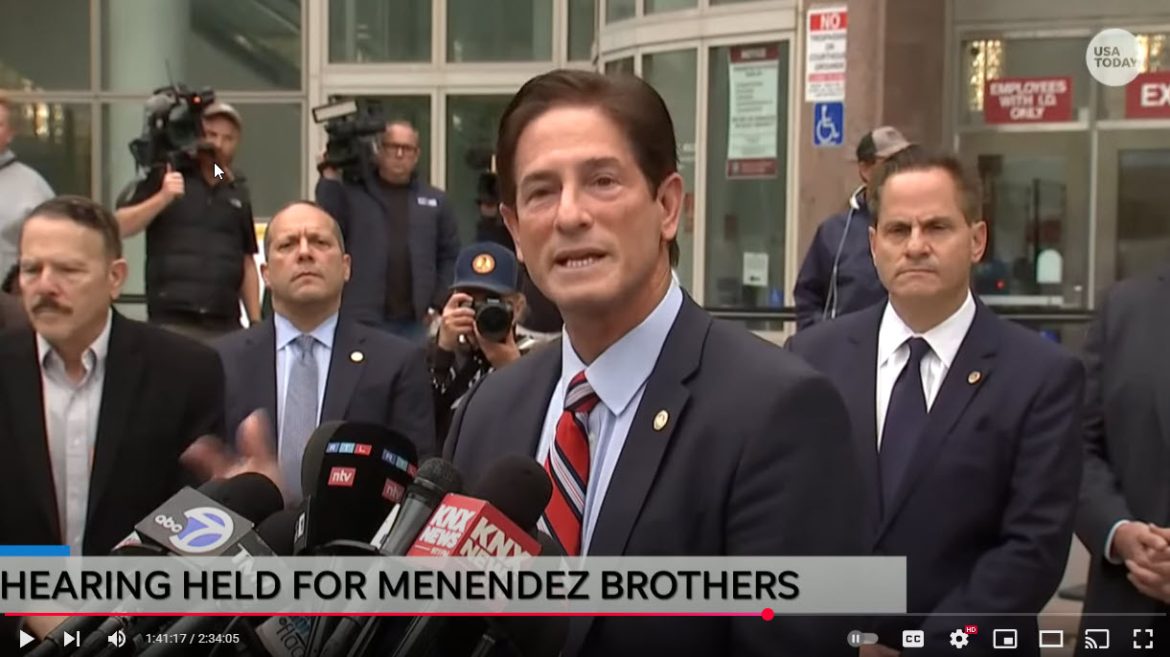After more than three decades behind bars, Erik and Lyle Menendez are one step closer to possibly having their life-without-parole sentences revisited. A Los Angeles County judge allows the long-awaited resentencing hearing to proceed, marking a dramatic new chapter in one of the most sensational family murder cases in American history.
On April 17 and 18, the courtroom in Van Nuys is once again filled with emotional testimony, contentious legal arguments, and echoes of the past. The Menendez brothers, now in their 50s, were convicted in 1996 for the 1989 shotgun murders of their parents, Jose and Kitty Menendez. The original trial gained nationwide attention not only for the horrific nature of the crime but also for the defense’s claim that the killings were an act of desperation following years of physical, emotional, and sexual abuse.
Despite two juries initially deadlocking in their 1993 trials, the brothers were ultimately convicted in a second trial and sentenced to life in prison without the possibility of parole. For decades, their appeals have failed—until now.
The resentencing hearing, initially opposed by current District Attorney Nathan Hochman, is allowed to proceed after a tense legal battle with former DA George Gascón’s administration, which had previously supported the brothers’ petition. During an April 11 hearing, Judge Michael Jesic rejects Hochman’s attempt to withdraw the motion and rules that the case warrants a full hearing.
Outside the courthouse, Hochman clarifies that while he is not currently supporting resentencing, he is not fully opposed. “It’s not a no. It’s a not yet,” he says, adding that the brothers still have not accepted full accountability for their crimes. Hochman emphasizes that any reconsideration must be based on new evidence or substantial changes in law—not just public sentiment or social media campaigns.
Defense attorney Mark Geragos, who has represented the brothers for decades, accuses Hochman of having a political agenda and ignoring the rights of family members who are uniquely positioned as both victims and relatives of the defendants. “He’s sidestepping a California constitutional victim’s rights law,” Geragos argues, referencing surviving family members who support the brothers’ claims of abuse and hope for their release.
The renewed hearing is being held under a recent California legal reform that allows courts to reevaluate life sentences in cases involving youth offenders or those who may have endured trauma or abuse. The Menendez brothers, both in their early twenties at the time of the murders, are arguing that new laws and contemporary understanding of trauma victims should be applied retroactively to their case.
Public support has surged in recent years, largely fueled by a new generation of advocates on social media platforms such as TikTok and YouTube. The case has found new life in the form of documentaries, podcasts, and video essays that re-examine the trial and highlight inconsistencies in the prosecution’s portrayal of the brothers’ motivations. The viral attention has led to the resurfacing of previously sealed testimony and affidavits supporting the brothers’ abuse claims.
Court proceedings on April 17 and 18 focus on whether new legal frameworks—like California’s SB 1437 and SB 775, which change the way felony murder and accomplice liability are assessed—can be retroactively applied. Witnesses testify about the brothers’ behavior, mental health, and evidence of long-term abuse, while prosecutors maintain that nothing justifies the violent ambush-style killing of their parents.
Judge Jesic signals that the case will not be decided quickly and sets a continuation date to allow time for further evidence review and legal arguments. Observers say the case could set a precedent for how historic abuse claims are weighed against long-standing convictions under new criminal justice reform laws.
For now, the Menendez brothers remain in custody, awaiting further proceedings that could reshape the outcome of their lifelong incarceration. The hearing is expected to resume in the coming weeks as the court continues to evaluate whether justice, as defined in 1996, still holds in 2025.



